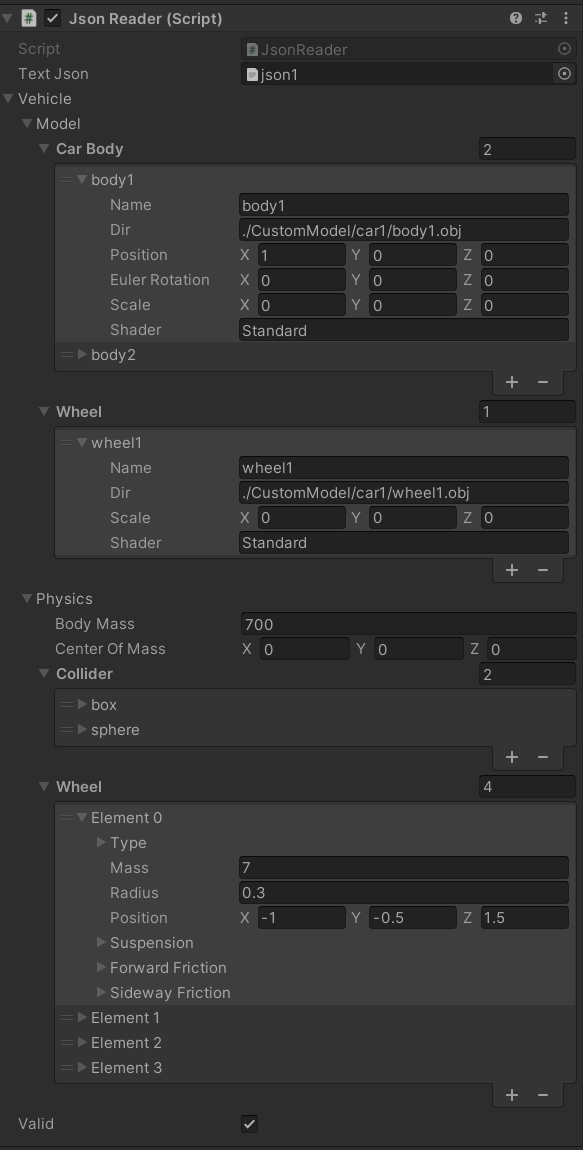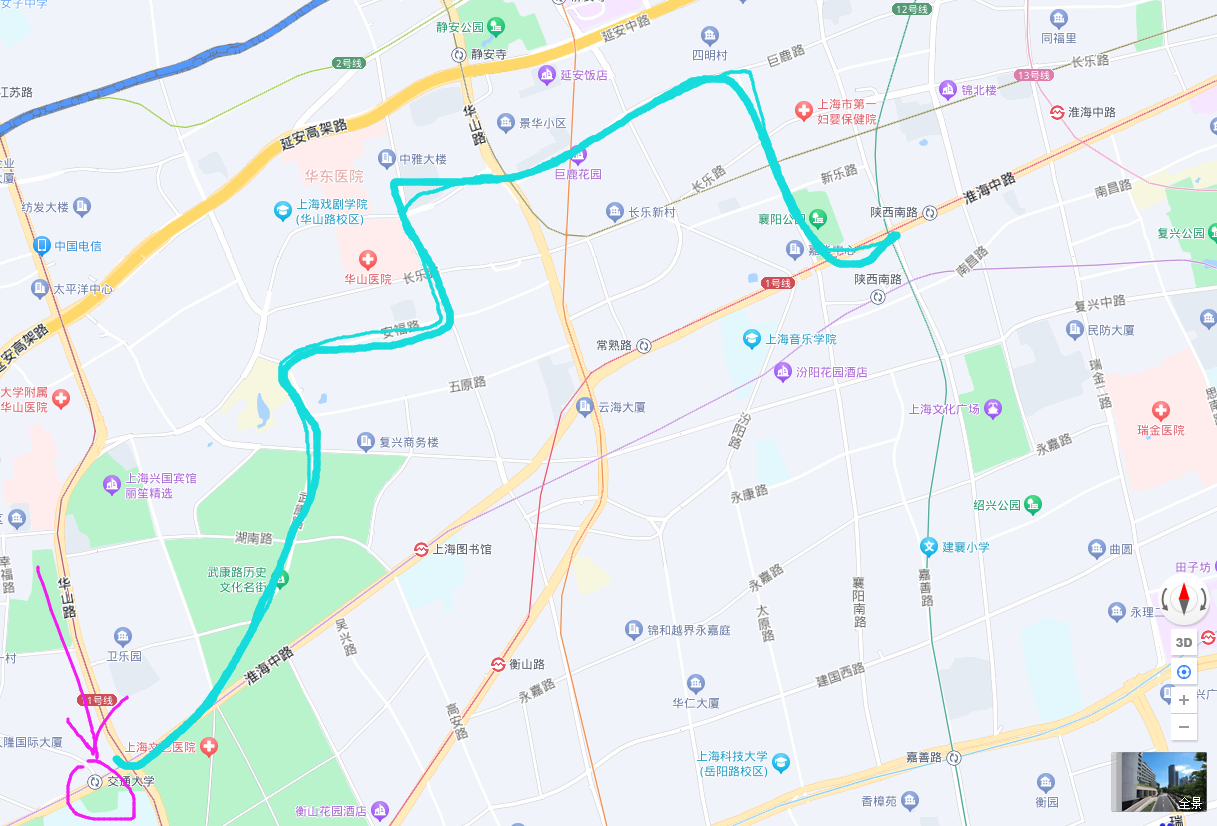Autonomous Driving
Perception
- Navigation tool
- Camera
- Radar
- LiDAR
- Infrared detector
- Speedometer
- veh-veh communication
- veh-infrastructure communication
Decision-making
- departure time
- good route
- good lane
- driving style
- way to accel/decel
- make a turn
- park location
Architecture
- Pre-trip
trip generation, modal choice, routine choice
- In-trip
Path planning, Maneuver regulation
- Post-trip
Parking
Pre-trip decisions
- Centralized
central command center send instructions
Some win, some lose - Decentralized
plan trip independently, selfish
little communication
Sometime efficient, sometime inefficient
In-trip decisions
- offline info
static, in form of map
- online info
enable the route to be adapted to changing traffic conditions
Post-trip decision
Speed tracking
Dynamic system
- State Variable
$v[t]$
- State space
$R>= 0$
- Control input
$u[t]$(accel)
- System dynamic
$v[t+dt] = v[t]+u[t]*dt$
Open-loop control
Specify the control input $u[t]$ for all t in $[0,T]$
not a good idea for autonomous driving.
In practice, we need to consider the uncertainty of the system.
We should have:
$$
v[t+dt]=v[t]+u[t]dt+w(t)
$$
Where w(t) is the noise term capturing the uncertainty of the system.
Closed-loop control
Specify the control input $u[t]$ as a function of the state $v[t]$
able to adapt to the uncertainty of the system.
Compare the state $v[t]$ with the desired state $v_desired[t]$
Essentially, we need a mapping from state to control input
like map speed to acceleration
$$
v[t+dt]=v[t]+mu[v[t]]dt+w(t)
$$
Linear controller
the $u[t]$ has linear relationship with $v[t]$
$$
\mu[v] = k[v-v_{desired}]
$$
LTI system
linear time-invariant
Control of LTI system
exponential convergence is stronger than asymptotic convergent
if LTI system is asymptotic convergent, it is also exponential convergent
$$
x[t+1]=ax[t]+bu[t]
$$
Speed tracking
given:
$v_{desired}, \delta$
determine:
$u[t]$ $t = 0,1,2$
state
$v[t]$
$v[t+1] = v[t] + u[t]\delta + w[t]$
select $u[t]$ so that $w[t]$ will not accumulate
$u[t]=\mu(v[t]) = kv[t]$
$$
v[t+1] = f(v[t],u[t])
$$
Remember the review question
Trajectory tracking
Overview:
track means asymptotic convergent
$x[t]$ and $x_{desired}[t]$
$\lim_{t\rightarrow\infty}|x[t]-x_{desired}[t] | = 0$
state of system:$[x[t], v[t]]^T$
if successful:
$$
[x[t], v[t]]^T \rightarrow [x_{desired}[t], v_{desired}[t]]^T
$$
Control policy
- A control policy is a function
- This function maps a state to a control input
$$
u[t] = f(x[t],v[t])
$$
$$
u[t] = -k_1(x[t]-x_{desired}[t])-k_2(v[t]-v_{desired}[t])
$$
$$
k_1,k_2>0
$$
Aircraft control policy
State Variable
Intuitive
- Aircraft
- Rotation (in euler angle: x,y,z)
- Position (In the world coordinate system:x,y,z)
- Linear velocity (In the world coordinate system: x,y,z)
- Angular velocity (In the world coordinate system: x,y,z)
- Acceleration (In the world coordinate system:x,y,z)
- Carrier Vessel Landing Runway
- Position
- Rotation (fixed)
- Velocity (fixed)
Extensive
- Aircraft
- AoA (angle of attack 攻角)
Decision Variable
- Aircraft
- Pitch angle (control aircraft’s rotation along x axis)
- Roll angle (control aircraft’s rotation along z axis)
- Yaw angle (control aircraft’s rotation along y axis)
- Throttle (control thrust)
Level 1 (Basic) Policy
Only contain the control over control surface (on control over throttle)
Attitude Control/Maintainance
Pitch(俯仰角) C/M
Function: KeepPitch()
Control the angle of horizontal tail (elevator)
First keep the angle of elevator same with AoA(攻角), to avoid the disturbance of the horizontal tail on the attitide of the aircraft.
1
aircraft.PitchAngle = aircraft.AoA;
这里的aircraft.PitchAngle指的是飞机升降舵的角度(下片为正)
根据当前俯仰角,俯仰速度,和目标俯仰角,调整升降舵面的角度
1
aircraft.PitchAngle += 5 * (p - aircraft.Pitch) / Mathf.Exp(10 * aircraft.PitchSpeed * Mathf.Sign(p - aircraft.Pitch));
Other Attitude C/M
与俯仰角类似(分别控制滚转舵面以及偏航舵面),不过不需要第一步
Level 2 Policy
Velocity Direction Control/Maintainance
Gliding Angle (下滑角)
Control the thrust of aircraft to change the angle of gliding
保持飞机的俯仰角不变(5度仰角)
1
KeepPitch(5f);
计算当前下滑角
1
float velAngle = 90 - Vector3.Angle(aircraft.rb.velocity, Vector3.up);
根据下滑角更改油门大小
1
aircraft.Thrust += (p - velAngle)/500f;
Level 3 Policy
Follow Trajectory
Vertical Approaching (竖直平面上接近预定下滑道)
通过调整飞机的下滑角来使飞机在竖直面上接近并维持在理想的下滑道
- 计算偏差对应的向量
1
Vector3 approachDirection = Vector3.ProjectOnPlane(route.Destination - transform.position, route.direction);
- 根据偏差值调整下滑角的大小(-3为目标下滑轨道的下滑角)
1
ThrustKeepGliding(-3 + Mathf.Clamp(approachDirection.y / 10f, -5,5));
Horizontal Approaching (水平面上接近预定下滑道)
通过调整飞机的偏航舵面角度(进而影响飞机的y轴rotation)来使飞机在水平面上接近并维持在理想的航道上
- 计算偏差对应的向量
1
2
3
4
5
6
7
8
9
10
11Vector3 approachDirection = Vector3.ProjectOnPlane(route.Destination - transform.position, route.direction);
float distance = 0;
if (Vector3.Angle(approachDirection, transform.right) < 90)
{
distance = Vector3.ProjectOnPlane(approachDirection, Vector3.up).magnitude;
}
else
{
distance = -Vector3.ProjectOnPlane(approachDirection, Vector3.up).magnitude;
} - 根据偏差值调整飞机的目标偏航角度(-8为目标下滑轨道的偏航角度)
1
KeepYaw(-8 + Mathf.Clamp(distance / 10f, -50, 50));
Get the ideal trajectory(补充)
基本的策略以及阐述完毕,那么所谓的理想下滑道到底应该怎么得到呢?
理想下滑道是一个射线,包含一个终点(飞机着陆的终点)和一个方向(飞机接近的方向)
1 | public class Target_Route |
理想航道的偏航角和下滑角已知(分别为-8(平行于着陆跑道)和-3)
通过迭代飞机着陆所需时间来求得下滑道终点的位置
1 | route.Destination = CV.transform.position; |
Prefabs in Unity
A prefab is a template for a game object that can be reused across multiple scenes. Using prefabs can help build scenes faster because a prefab can be created and then reused across multiple scenes without having to recreate the same game object each time.
Creating Prefabs
To create a prefab, first create a game object in the Hierarchy window and add components and child game objects to it until it looks like the desired prefab. Then drag the game object from the Hierarchy window to the Assets folder in the Project window. This will turn the game object into a prefab that can be reused across multiple scenes.
An empty prefab can also be created by right-clicking in the Project window and selecting Create > Prefab, and then editing it in the Inspector window.
Instantiating Prefabs in Scripts
To instantiate an existing prefab in a script, first create a public variable in the script to reference the prefab, and then drag the prefab onto that variable in the Inspector window. For example:
1 | public GameObject myPrefab; |
The above code creates a public variable named myPrefab and uses the Instantiate method in the Start method to create an instance of the prefab. The prefab can be dragged onto the myPrefab variable in the Inspector window so that it is instantiated at runtime.
To instantiate a prefab from the Assets folder in a script, use the Resources.Load method to load the prefab and then use the Instantiate method to instantiate it. For example:
1 | void Start() |
The above code uses the Resources.Load method to load a prefab named MyPrefab from the Resources folder in the Assets folder and then uses the Instantiate method to create an instance of the prefab.
Note: To use the Resources.Load method, the prefab must be located in a Resources folder within the Assets folder.
Trouble shooting
- Pink material
- Install Universal RP in package manager
- Edit/Rendering/Materials/Convert…
- or what about try this fork

Starting point
The unity’s build-in physics engine PhysX is far from being precise enough for a vehicle simulator.
Lecture content
operational ability vs academic ability
动手能力对于公司创业初期有关键作用
基础研发实力决定公司后期发展(学科)
After lecture chatting
phd vs start a business
读书永远风险最低, 长线收益最高
李教授能搞项目是因为他可以带动硕博本,但本科生指挥不动人
How to design education
以项目为导向,兼顾基础知识的课程
自上而下, 夯实基础原理的理解,而不是调参摁卷(某些竞赛就是源代码拿来然后使劲调参,钻牛角尖,不符合人才培养要求,无基础能力,适应力差)
某些创新的小比赛就比较好,能给自己的成果锦上添花
Install package
For .deb
1 | sudo dpkg -i *.deb |
For .AppImage
1 | chmod +777 *.AppImage |
Fix package
1 | sudo apt -f install |
Manage process
See all the process:
1 | ps aux |
Find the target pid
1
pgrep [partial name]
return the pid of the process
kill the process
1
kill [pid]
Useful command
grep
Search for confirmed strings in file
1 | grep [option] [pattern] [file] |
option
- -i: ignore capitalizing
- -v: inverse search
- -n: show the line num
- -f: reveral search of files in folder
- -i: only print the name od file
- -c: only print the line num
Example
display the battery percentage
1 | upower -i /org/freedesktop/UPower/devices/battery_BAT0 | grep percentage |




